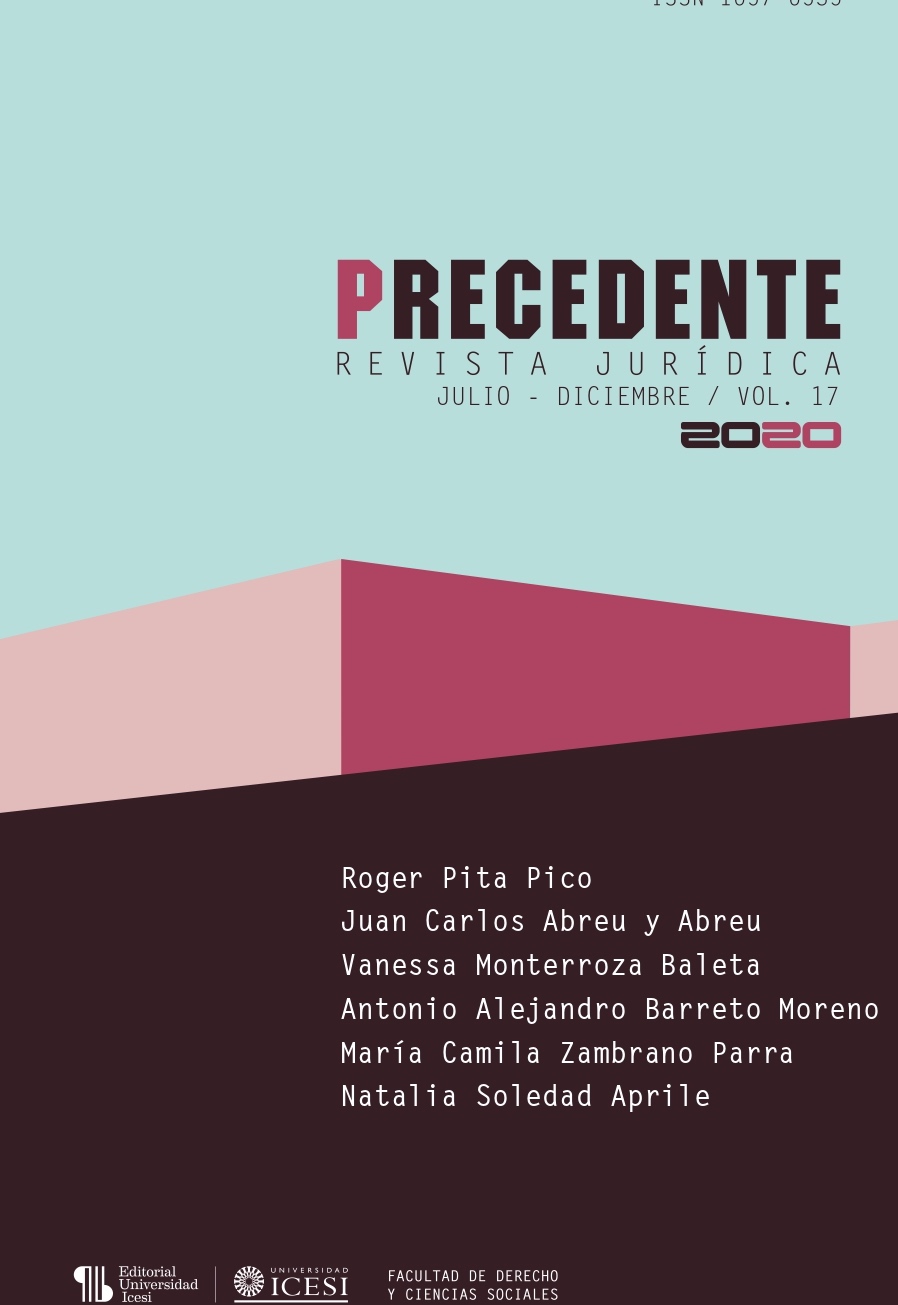Natives, excluded and marginalized subjects by the mexican Constitution
DOI:
https://doi.org/10.18046/prec.v17.3805Keywords:
Mexico, indigenous people, multiculturalism, peace, Constitution, Human RightsAbstract
This article recounts the evolution of rights to difference in Mexico, from legal anthropology. We point out the vicissitudes that indigenous populations have gone through for recognition of their identities and territories. Finally, we emphasize the current multicultural panorama, developing the advances and challenges of the Mexican State in terms of protection and guarantees from the populations that have decided to conserve and transmit non-Western ways of life.
Downloads
References
Correas, O. (2007). Derecho indígena mexicano (tomo I). Centro de Investigaciones Interdisciplinarias en Ciencias y Humanidades, Universidad Nacional Autónoma de México, Ediciones Coyoacán.
Bonfil, G. (1990). México profundo: una civilización negada. Grijalbo.
Díaz-Polanco, H. (2008). La insoportable levedad de la autonomía. En N. Gutiérrez Chong (coord.), Estado y autonomías en democracias contemporáneas. IIS/ Plaza y Valdés.
Díaz-Polanco, H. y Sánchez, C. (2002). Diverso: el debate por la autonomía. Siglo XXI.
Dussel, E. (2010). Transmodernidad e interculturalidad: Interpretación desde la filosofía de la liberación. En A. Mondragón y F. Monroy (coords.), Interculturalidad: Historia, experiencias y utopías. Universidad Intercultural/ Plaza y Valdés.
Gómez Salazar, M. (2009). Pluralidad de realidades, diversidad de culturas. UNAM.
Amuchástegui, J. (2004). Autonomía dignidad y ciudadanía: una teoría de los Derechos humanos. Tirant lo Blanch.
López y Rivas, G. (1996). Nación y pueblos indios en el neoliberalismo. Universidad Iberoamericana/Plaza y Valdés.
López y Rivas, G. (2004). Autonomías, democracia o contrainsurgencia. Era.
Olivé, L. (2006). Interculturalismo y Justicia Social. UNAM.
Panikkar, R. (2000). La Paz e interculturalidad, España. Herder.
Roseberry, W. (2014). Antropologías e historias: ensayos sobre cultura, historia y economía política. El Colegio de Michoacán.
Santos, B. (2012). Cuando los excluidos tienen Derecho. En B. Santos y A. Grijalva (eds.)., Justicia indígena, plurinacionalidad e interculturalidad (pp. 13-50). Fundación Rosa Luxemburg/Abya-Yala.
Soriano, M. L. (2013). Organización y filosofía política de la revolución zapatista en Chiapas. Universitas, 18, 119-148.
Villoro, L. (1999). Estado Plural, Pluralidad de Culturas. Biblioteca Iberoamericana de Ensayo/Paidós/FFyL/UNAM.
Villoro, L. (2010). Los retos de la sociedad por venir. FCE.
Downloads
Published
Issue
Section
License
Copyright (c) 2020 Juan Carlos Abreu y Abreu

This work is licensed under a Creative Commons Attribution-NonCommercial 4.0 International License.
Material in this publication may be reproduced without authorization, provided the title, author and institutional source is acknowledged.








